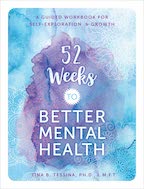
 |
| WHAT IS THE HARM IN NEGATIVE SELF-TALK
The physical harm of negative self-talk is that it creates chronic stress, which is very hard on the body, and can lead to heart attacks, high blood pressure, lowered immune resistance, and other dangerous conditions. The emotional harm of negative self-talk is that it causes a negative self-image, including loss of self-esteem, which can impact your happiness and your relationships. When you become inured to negative self-talk, you’ll be negative with others, which turns them away from you. Negative self-talk also causes you to lose confidence in your thinking and your decision-making, which can cause you to depend on what others say, and can lead in some very bad directions. Why do we talk to ourselves harshly? Most negative self-talk is learned in our early years; some if the result of Post-Traumatic Stress. If we grow up around negativity, at home, in the community or at school, we internalize it and believe it. Children have few defenses against it, and internalize it easily. It soon becomes a habit that seems natural, like the way it should be. Negative self-talk actually shapes your brain, because it generates stress hormones that can physically affect your neurons, the brain cells that conduct the electricity that shapes your thoughts. Research shows that brains under stress work differently, you can’t think as clearly, and you’re in fight-or-flight reaction a lot of the time. People often think of negative self-talk as a way to motivate themselves, but it is never as motivating as positive self-talk. Negative self-talk is discouraging; positive self-talk is encouraging. Motivation grows out of celebration and appreciation. If you have the habit of negative self-talk, you’ll pass it on to your children, but if they see you learning to be more positive, they’ll realize they can change their own inner dialog, too. The good news is you can start to identify triggers and negative thinking, and find healthier ways to cope or talk to yourself. Start by actually listening to your internal dialog: Give yourself a chance to pay attention to what you’re saying to yourself. To help clients break the habit of negative self-talk, I’ve developed many strategies over my 45 years of counseling. I’ve now written a whole book about it, 52 Weeks to Better Mental Health: A Guided Workbook for Self-exploration and Growth which contains prompts to help the reader change their self-talk from negative to positive. Here’s a quote: “We all have leftovers from the past: old problems, hurts, and memories that can trouble us on an ongoing basis. Everyone also has an “internal dialog&lrquo; that often includes hurtful words and beliefs from our pasts that we unconsciously retained because they were painful or concerning. These harsh phrases tend to run on a loop just below our awareness. Whether the mental leftovers come from childhood, a destructive relationship, or a negative work environment, you don’t have to live with them. You can learn to replace them with internal dialog that is encouraging rather than discouraging, motivating rather than destructive, and healing rather than upsetting. To do that, you need to become aware of the hidden, inner dialog you have with yourself.&rdquoo; The basic strategies are: 1. Become aware of the self-talk: Learn to listen to what you’re saying to yourself. How would you feel if a friend said that to you? If you wouldn’t like it, learn to change it. 2. Write it down, so you can see it. 3. Turn negatives into positives: take each negative statement and turn it around. For example, if you think you’re “shy” you can reframe that to be “introspective” “thoughtful” “comfortable by yourself” “Low-key”. Not everyone has to be the life of the party. Some of the world’s best thinkers, like Thoreau, Einstein and Edna St. Vincent Millay were quiet, self-contained people. Reframe the negative beliefs about yourself into positive ones. 4. Create an affirmation with the positive thought: “I, (your name) am happy to be quiet and thoughtful.” 5. Repeat the affirmation, aloud and in writing, many times, until it overpowers the negative thought. As you learn to combat the negative self-talk, you’ll develop a more positive attitude toward yourself, both emotionally and physically. A positive attitude helps you think more clearly, without second-guessing every idea you have, and make better choices. It also makes you more pleasant for others to be around; that is, more attractive to your friends, family, and even strangers. Positive self-talk is the foundation of a happy life. © 2023 Tina B. Tessina Adapted from: 52 Weeks to Better Mental Health: A guided Workbook for Self-exploration and Growth 
Author Bio: Tina B. Tessina, Ph.D.is a licensed psychotherapist in S. California since 1978 with over 40 years’ experience in counseling individuals and couples and author of 15 books in 17 languages, including Dr. Romance’s Guide to Finding Love Today; It Ends With You: Grow Up and Out of Dysfunction; The Ten Smartest Decisions a Woman Can Make After Forty; The Real 13th Step; How to Be Happy Partners: Working it Out Together; How to Be a Couple and Still Be Free; Money, Sex and Kids, and her newest, 52 Weeks to Better Mental Health. She writes the “Dr. Romance” blog, and the “Happiness Tips from Tina” email newsletter. Online, she’s known as “Dr. Romance.” Dr. Tessina appears frequently on radio, TV, video and podcasts. She tweets @tinatessina. | ||
| RETURN TO HAPPINESS TIPS • GO TO HOME PAGE | ||
| Phone: (562)438-8077 | for permission to reprint, email: tina@tinatessina.com All material ©2023 Tina Tessina. All rights reserved. |